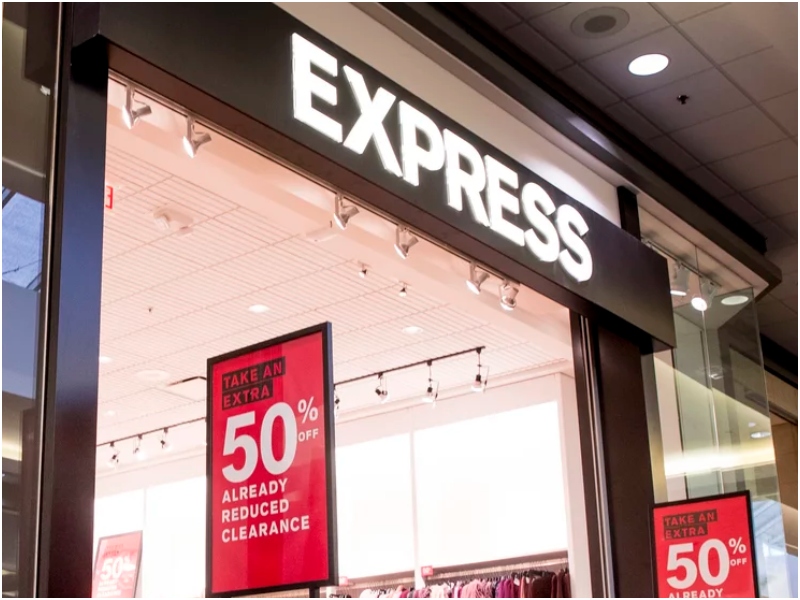Express, a long-standing fixture in American malls, has filed for bankruptcy protection, signaling the closure of dozens of stores while also exploring options for its survival through a potential sale.
Once a go-to destination for generations of mall-goers seeking stylish clothing, Express has struggled in recent years amid changing consumer preferences and the decline of traditional mall culture.
The shift towards more casual and individualized styles, coupled with mounting debt and high rental costs, has posed significant challenges for the retailer.
The bankruptcy announcement on Monday outlined plans to shutter 95 Express stores, representing nearly 20% of its locations, along with the closure of all 10 UpWest stores.
The move comes after the New York Stock Exchange delisted Express due to its declining stock value.
In a bid for resurgence, Express has attracted interest from a consortium led by brand-management firm WHP Global, along with major mall operators Simon Property Group and Brookfield Properties.
This consortium specializes in revitalizing struggling retail brands, aiming to breathe new life into Express amid its financial struggles.
Express’s newly appointed CEO, Stewart Glendinning, acknowledged past missteps in the company’s product offerings, particularly in the women’s category, where there was a lack of balance across various segments.
Despite these challenges, Glendinning expressed confidence in the company’s potential for overall improvement.
As part of its restructuring efforts, Express is set to receive a cash infusion of $35 million from its lenders, along with an additional $49 million from the Internal Revenue Service under the CARES Act, providing much-needed financial support during these uncertain times.
Strategic Move
Filing for bankruptcy protection allows Express to reorganize its debts and operations under the supervision of the bankruptcy court.
This process provides the company with relief from its creditors while it develops a plan to address its financial challenges and emerge from bankruptcy in a stronger position.
When a company files for bankruptcy protection, an automatic stay goes into effect, preventing creditors from taking legal action to collect debts or seize assets. This gives the company breathing room to negotiate with creditors, restructure its debts, and potentially sell assets or operations.
In the case of Express, filing for bankruptcy protection enables it to close underperforming stores, renegotiate leases, and explore options for a sale or restructuring.
The involvement of a consortium of investors, including brand-management firms and mall operators, suggests that there may be a plan to reinvigorate the brand and position it for future success.
The bankruptcy filing also allows Express to secure financing to support its operations during the restructuring process.
The $35 million in new financing from lenders, along with additional funds from the CARES Act, provides the company with much-needed liquidity to navigate the bankruptcy proceedings and continue operating while it works towards its turnaround goals.

